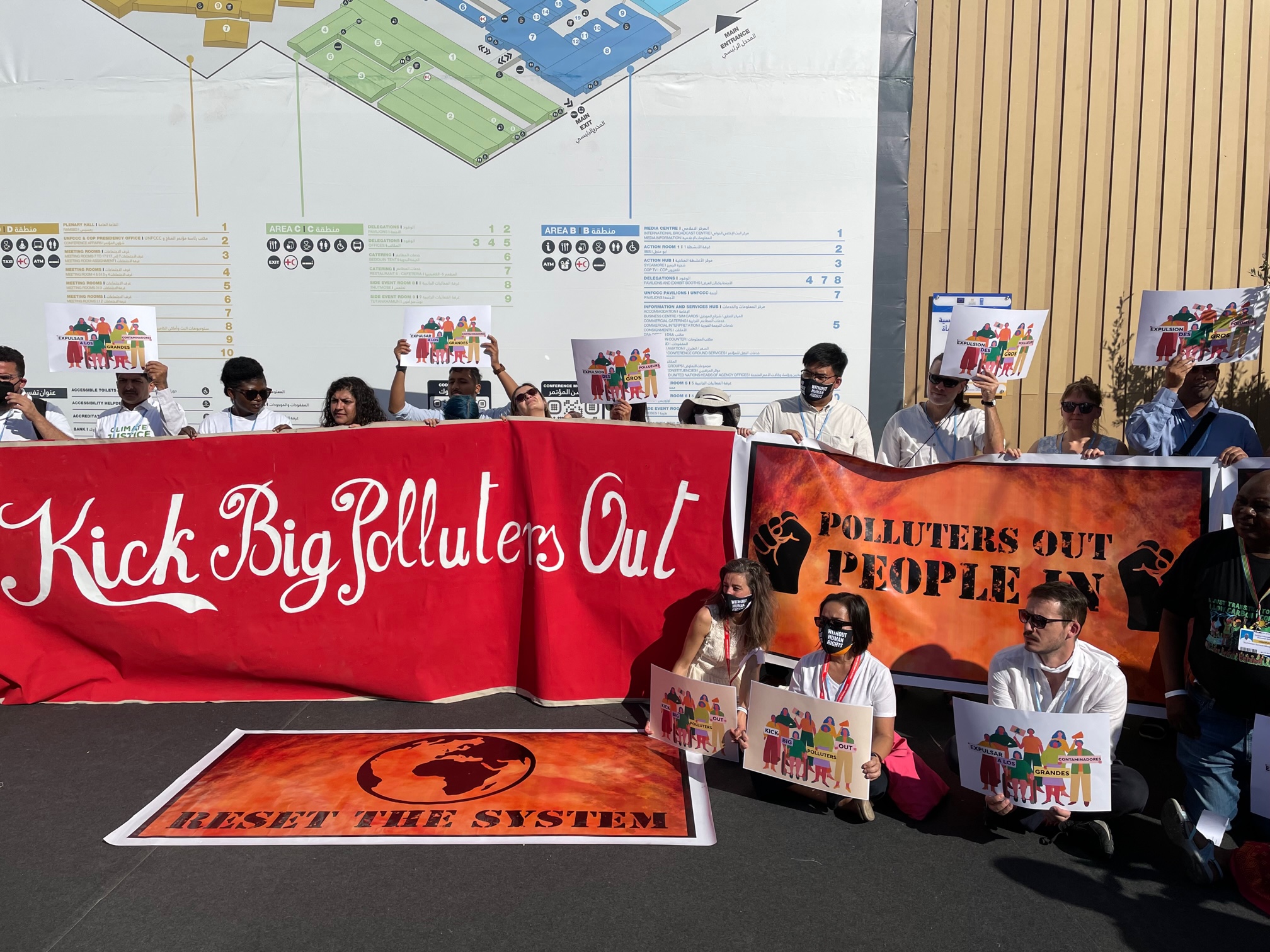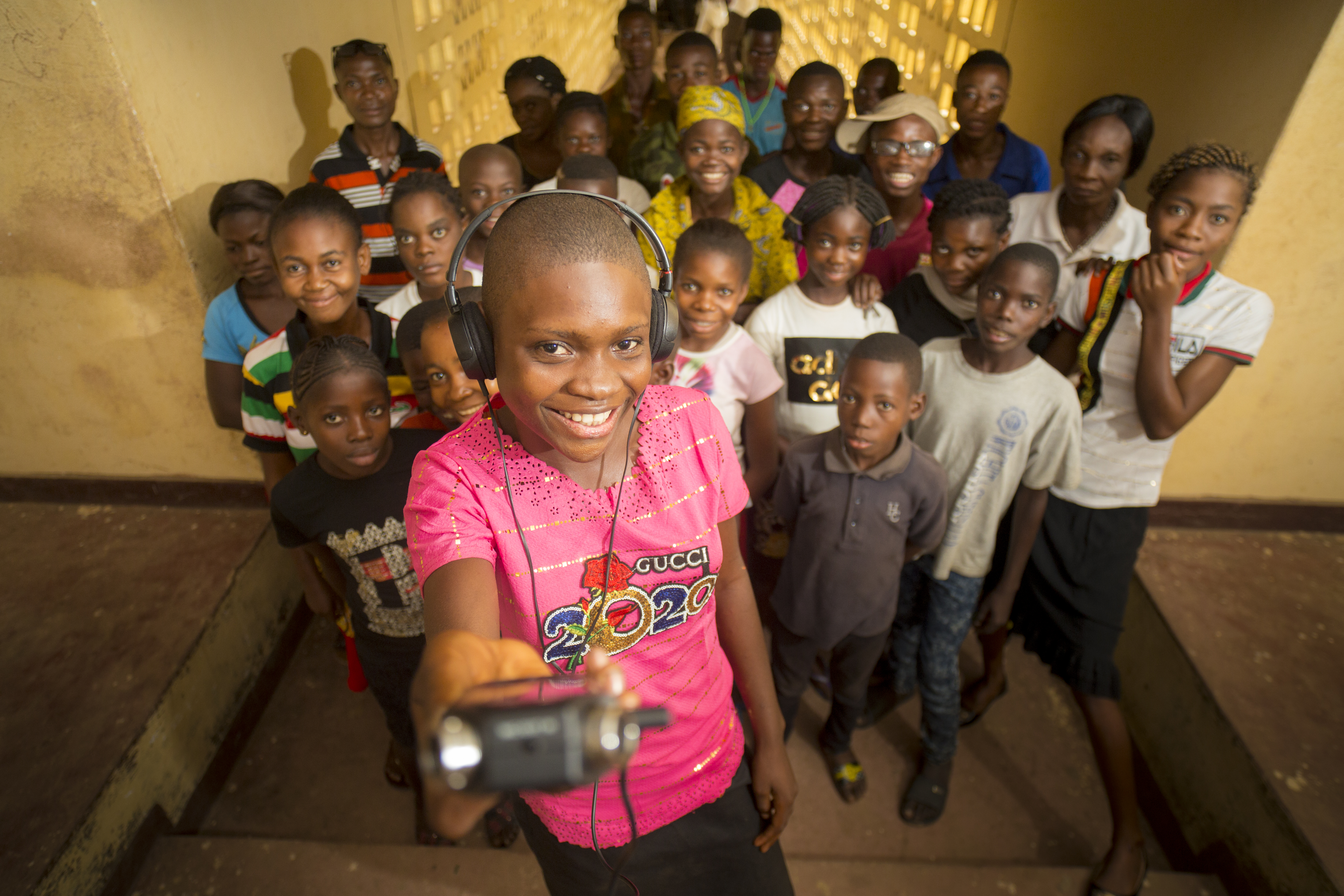|  | Know better. Do better. |  | Climate. Change.News from the ground, in a warming world |
|
| By Laurie Goering | Climate Change Editor |
|

| We’re at COP27 in Sharm el-Sheikh this week, where the U.N. climate negotiations are heading into their final days.
At the top of the agenda are some big remaining questions: Will a new fund to help vulnerable countries – like flood-slammed Pakistan - cope with the worsening “loss and damage” from climate shocks be set up? Will the Paris Agreement goal of holding global temperature rise to 1.5C survive?  Activists protest at the Sharm El-Sheikh International Convention Centre, during the COP27 climate summit, in Sharm el-Sheikh, Egypt, November 11, 2022. REUTERS/Mohamed Abd El Ghany |
"Global Shield"While countries hugely at risk from climate impacts – including small island states – are pushing hard in Egypt for a separate fund to channel money to help countries cope with disaster and deal with longer-term threats to lives and economies, wealthier governments, with the V20 group of vulnerable nations, have argued that existing institutions could do much of the job.
On Monday they launched a “Global Shield” initiative that brings together and expands initiatives around subsidised insurance coverage, stronger social protection and pre-approved disaster funding, with the aim of getting help to disaster hit countries within 48 hours.
"We thought it was so urgent to get something up and running now,” said Jennifer Morgan, a special envoy for international climate action in Germany's foreign ministry, saying the shield would “complement” rather than replace a “loss and damage” finance facility.
But climate activists at COP27 said they believed some wealthier G7 countries are positioning the Global Shield as a substitute for a new loss and damage fund.
.png/640w) Climate activists demonstrate at the COP27 climate summit in Egypt against the presence of fossil-fuel industry representatives at the talks, Sharm El-Sheikh, Egypt, November 10, 2022. Thomson Reuters Foundation/Megan Rowling |
Fossil fuelling?Elsewhere at COP27, African activists have called for an end to expansion of fossil fuels on the continent, highlighting how the industry has left a large share of people still without electricity and mired in poverty.
But research released by human rights groups shows 636 fossil fuel lobbyists are registered at the U.N. talks, affiliated with some of the world's biggest oil and gas firms.
Egyptian organisers of the summit have said high-polluting industries need space to show "best practices" of how they will meet climate pledges - but critics disagree.
"How are you going to address the dire climate impacts on the continent when the fossil fuel delegation is larger than that of any African country?" said Philip Jakpor of Corporate Accountability and Public Participation Africa.
 Indigenous Brazilians Shirley Djukurnã Krenak and Alberto Terena pose for a photo at the COP27 U.N. climate negotiations in Sharm el-Sheikh, Egypt, November 11, 2022. Thomson Reuters Foundation/Laurie Goering |
Brazil's backOne of the more joyous spots at COP27 is the flag-draped Brazilian "Climate Action Hub", where climate and forest
experts and indigenous leaders are celebrating the election defeat of far-right President Jair Bolsonaro - whose administration oversaw a massive rise in forest losses and indigenous land invasions - and planning recovery efforts.
Those include developing a new sustainable "bioeconomy" for the Amazon and other endangered ecosystems in Brazil - built on everything from high-speed internet access to renewable energy and smarter use of rich plant biodiversity.
"Brazil is returning as a protagonist" in global efforts to protect forests and drive climate action, said Marina Silva, an Amazon-born former Brazilian environment minister.
But threats to other forests, like those in Africa's Congo basin, are rising, experts warn, as mining for oil, gas and rare minerals used for the clean energy transition put the world's second-largest rainforest at risk. .JPG/640w) A young reporter smiles at the camera with a recorder in her
hand while members of her community gather behind her in Kinshasa, The Democratic Republic of Congo, June 28, 2016. Rowan Pybus/Handout via Thomson Reuters Foundation |
| |
| | The need for help for vulnerable countries hit by climate disasters is clear, but progress is slow at COP27 summit in Egypt | At the COP27 climate change conference, hopes of keeping to the 1.5C target are waning, but scientists say it is vital to retain | More and more cities are creating the new role as hotter summers cause surging health problems and economic pain in urban areas | COP27 activists demonstrated for more finance and human rights, though they were not permitted to take to the streets as usual | Johan Rockström tells U.N. COP27 climate summit that more people face threats from weather disasters to water and food shortages | From Zambia to DRC, young journalists are bringing news of the world's progress on climate change back to local listeners | |
| | | | | | |
|